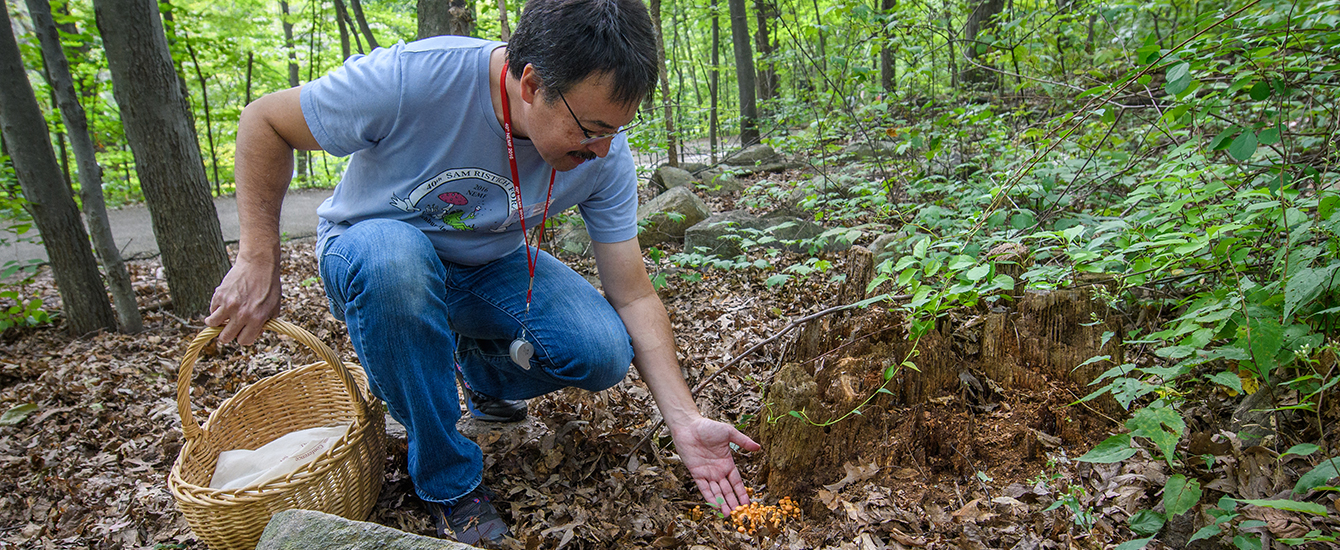Biology
Molecular phylogenetics of the Gloeophyllales and relative ages of clades of Agaricomycotina producing a brown rot
Document Type
Article
Abstract
The Gloeophyllales is a recently described order of Agaricomycotina containing a morphologically diverse array of polypores (Gloeophyllum), agarics (Neolentinus, Heliocybe) and resupinate fungi (Veluti-Veluticeps, Boreostereum, Chaetodermella), most of which have been demonstrated to produce a brownrot mode of wood decay and are found preferentially on coniferous substrates. Multiple phylogenetic studies have included taxa of Gloeophyllales, but none have sampled the order thoroughly, and so far only ribosomal RNA genes have been used. Consequently the limits and higher level placement of the Gloeophyllales are obscure. We obtained sequence data for three protein-coding genes (rpb2, atp6, tef1) and three rRNA regions (nuc-ssu, nuc-lsu, 5.8S) in 19 species of Gloeophyllales representing seven genera and analyzed them together with a diverse set of Agaricomycotina, emphasizing Polyporales. Boreostereum, which is suspected to produce a white rot, is the sister group of the rest of the Gloeophyllales, all of which produce a brown rot. Gloeophyllum contains at least two independent clades, one of which might correspond to the genus Osmoporus. White rot and resupinate fruiting bodies appear to be plesiomorphic in Gloeophyllales. Relaxed molecular clock analyses suggest that the Gloeophyllales arose in the Cretaceous, after the origin of Pinaceae. © 2011 by The Mycological Society of America.
Publication Title
Mycologia
Publication Date
5-2011
Volume
103
Issue
3
First Page
510
Last Page
524
ISSN
0027-5514
DOI
10.3852/10-209
Keywords
Agaricomycotina, brown rot, systematics, taxonomy, wood decay
Repository Citation
Garcia-Sandoval, Ricardo; Wang, Zheng; Binder, Manfred; and Hibbett, David S., "Molecular phylogenetics of the Gloeophyllales and relative ages of clades of Agaricomycotina producing a brown rot" (2011). Biology. 234.
https://commons.clarku.edu/faculty_biology/234



